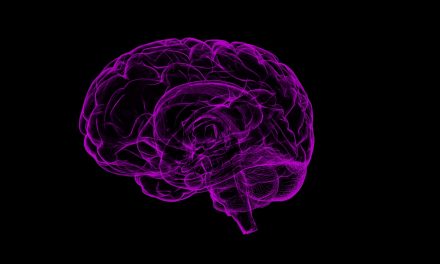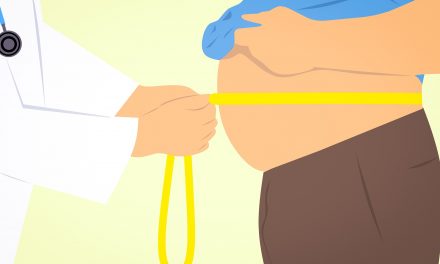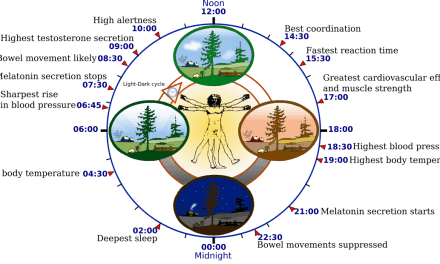Table of Contents
*DISCLAIMER. The contents of this article are to be used for information purposes only and are not to be considered medical advice. Consult with your health professional for any advice regarding supplementation.
Melatonin for supplementation was formerly derived from the pineal gland of bovine animals. It is now synthesized, which prevents contamination. It is produced by enzymatic reactions and is made available as a dietary supplement in tablet, patch, and liquid and gummies form.
A melatonin dietary supplement is available as a slow-release or quick effect. Consult your pharmacist or doctor for direction on which melatonin supplement is best, and the dosage needed to ensure a good night’s sleep.
Melatonin is most effective for people who struggle with insomnia and hyperactivity and dosage recommendations vary for different age groups. Melatonin levels decrease as people age which might create the need for seniors to use melatonin supplements. Some medications can impact the body’s natural melatonin levels, creating the need for supplementation.
The chart below can act as a general guideline to help you determine what is the best melatonin dosage for different age groups.
Melatonin Dosage By Age Group
| Children aged 0-3 | Children Aged 4-5 | Young Adults | Adults | Older Adults |
| 0 mg | 1-5 mg | 1-5 mg | 0.5-5 mg | 0.5-5 mg |
Melatonin dosage For Children Aged 0-3
Experts do not advise parents to give melatonin supplements to newborns and toddlers. The child needs to be at least three years of age in order to begin melatonin supplementation. The neurological endocrine system of Children below the age of 3 is still in development and melatonin supplementation could cause interference in this development.
Melatonin Dosage For Children Aged 4-5
Melatonin dosage for children is based on a range of factors. Children can start melatonin dosages at 1-5 mg. Optimal melatonin levels also play a significant role in combating childhood obesity.
Sleep has a strong influence on the inner workings of the human body, including metabolism. Nutrients like melatonin can provide benefits to someone that is suffering from insufficient or poor quality sleep.
There has been a steady increase in the child and adolescent obesity rate in the United States, year over year, which correlates perfectly with a decrease in children and adults getting the recommended 7- hours of sleep. Girls are more susceptible to obesity when factoring in insufficient sleep when compared to boys.
Melatonin dosage For Children with Autism
melatonin supplementation is effective in children with autism. An autistic child will require a lower dose than a normal child. Children with autism foster a unique relationship with sleep: it takes autistic individuals about 11 minutes longer to fall asleep as compared to non-autistic individuals.
Autistic children tend to have less rewarding sleep cycles: only 15 percent of their resting period is spent in the rapid eye movement (REM) phase. This phase is important for information retention: memories and learning grow and flourish during this time. Non-autistic individuals spend 23% of their time in the REM sleep phase. Individuals with ADHD follow a similar pattern.
Melatonin dosage For Teenagers
Young adults should begin with 1-5 mg of melatonin per day. It is advised to increase or decrease the dosage depending on its efficacy and to strive to use the minimum dosage while still getting the desired effects.
Melatonin dosage For Older Adults
Natural Melatonin levels within the body decrease with age: older adults with lower melatonin levels are advised to start at the lowest dosage: 0.5 mg.
Melatonin dosage For Diabetic Adults
Diabetic adults should consult a doctor before taking melatonin. According to research by Dr. Rhonda Patrick, melatonin helps regulate the production of insulin in the pancreas. Melatonin binds with receptors in the pancreas and gives it a signal to lower insulin production during the night. Evidence suggests that 10 mg of melatonin can help regulate testosterone levels in diabetic patients.
Melatonin dosage For Individuals with arthritis
The Arthritis Foundation recognizes the anti-inflammatory effects of melatonin. To reap the rewards of melatonin’s anti-inflammatory effects, a dose higher than 1-3 mg is required. It is safe to take up to 10 mg of melatonin per night.
Melatonin dosage For Lupus sufferers
Reactions vary, and it is important to consult a doctor regarding any supplementation with melatonin. For some lupus sufferers, melatonin is helpful and for others, magnesium and tryptophan have a more beneficial effect. Some lupus patients do not react well to melatonin supplementation. One of the side effects is inflammation. The recommended dose for lupus patients would vary depending on the physician’s recommendation.
Melatonin dosage for people with depression
People taking medication for depression need an individual patient review by their doctor if they are considering taking melatonin supplements. While it is generally safe to take medications such as Lexapro, Zoloft and Prozac with melatonin, it can also result in side effects such as confusion, dizziness and drowsiness. Elderly people may experience cognitive impairment such as motor coordination and judgment. Antidepressants increase fatigue, and adding melatonin to the fold may have limited benefits.
The relationship between depression and melatonin is largely unknown, but improved sleep quality usually correlates with increased happiness. Maintaining a regular sleep schedule with a minimum of 8 hours of sleep and abstaining from screens at least an hour before bed can help.
Melatonin dosage for anxiety sufferers
Getting high-quality sleep on a consistent basis is one of the key factors in maximizing your potential during your daytime activities. Regular and undisturbed sleep can increase your lifespan and encourage happiness throughout your day, thereby reducing anxiety.
Getting high-quality, undisturbed Sleep also helps regulate the emotions that are the purveyors of anxiety. According to Anthony Ong, associate professor of human development in the College of Human Ecology, Studies suggest that happiness and joy may slow the aging process. Happier people tend to have better lifestyle habits, which include maintaining a healthy sleep schedule.
Sleep can affect our lives in ways we cannot comprehend. Healthy melatonin levels are key for those who struggle with their sleep. And, getting undisturbed, restful sleep helps to maintain happiness and health.
Melatonin dosage for pregnant and breastfeeding women
There is an insufficient amount of research on melatonin supplementation and its effects on pregnant women.
Melatonin dosage For cancer patients
Melatonin is used during chemotherapy to subvert depression, and it can also be used to counter common side effects such as weakness, low platelet counts, seasonal depressive disorder and migraines. If you are suffering from cancer, consult with your doctor about melatonin usage.
Cancer has also been linked to sleep deprivation. Nearly one in four childhood cancer survivors are afflicted by sleep deprivation in their adult life.
A lack of sleep can impact adult health. Working the night shift may lead to chronic insomnia during off days. When a person that works night shifts tries to follow people that have a regular sleep schedule on weekends, insomnia is likely to become a symptom.
Melatonin dosage With alcohol
It is not recommended to take melatonin with alcohol. Alcohol has the opposite effect of melatonin; it sustains activity and alertness, and melatonin works to put the body to rest. Alcohol will strip the hormone of its effectiveness.
Melatonin dosage With coffee
It is not recommended to take melatonin supplements with coffee. Combining caffeine with melatonin can increase blood pressure levels and diminish its beneficial effects. It is best to abstain from coffee consumption at least six hours before going to bed.
Melatonin Dosage With Soda beverages
Soda, like alcohol and coffee, has a livening effect on the human body. It is ill-advised to drink soda beverages with or shortly after taking melatonin supplements. Because of the high sugar content, soda beverages might cancel the benefits that you are trying to get from melatonin supplements.
Melatonin dosage For Alzheimer’s Disease
Melatonin for Alzheimer’s Disease has been tested at dosages of 3 mg, 6 mg and 9 mg.
The antioxidant effect of melatonin in neurodegenerative conditions may benefit sufferers of Alzheimer’s and Parkinson’s disease. Melatonin has shown beneficial effects in neurobiology, which is anything that pertains to the nervous system.
Melatonin dosage For COVID
The recommended dose for COVID-19 is 2.5 – 10 mg at night. The dose can be administered on the first day of diagnosis.
Melatonin dosage for headaches
Melatonin‘s effects on headaches have been tested at 3 mg. Melatonin helps the human body manage headaches – the hormone is rife with anti-inflammatory capabilities.
The Healing Powers Of Melatonin
The melatonin hormone has the power to heal: it can provide relief from the pain associated with cancer and alleviate pain associated with the nervous system.
In some cases, melatonin supplementation can benefit the nervous system. It functions as an anti-excitatory, meaning it calms the nervous system down.
Sufficient melatonin levels are crucial for brain development, especially in children and adolescents.
Melatonin and Electronic Devices
Limiting time on electronic devices is crucial to ensuring the full effect of melatonin supplementation as well as maintaining natural melatonin levels. Evening use of light-emitting devices, including e-readers may lower the quality of sleep. Exposure to the screens from Electronic devices, especially at night will diminish melatonin levels. This exposure also has a hangover effect the next day: using e-readers in the evenings affects concentration levels the next day.
The circadian timing coincides with other important biological processes in the human body. The interruption of melatonin secretion with the use of an electronic device can shift the circadian rhythm and can cause sleeplessness. Reading a book from a paperback or hardcover book before bed will have a calming effect.
Melatonin supplements have become a popular natural alternative to sleeping medication, which often have numerous undesirable side effects. While sleeping pills and other remedies may be necessary through a doctor’s prescription, natural healing choices can also provide great relief.
Melatonin usage amongst the general population has increased from 0.4% in 1999-2000 to 2.1% in 2017-2018. YouTube and Tik Tok are home to many videos related to sleep issues and melatonin. It is a trending topic: many people seek relief from sleep issues.
There are many foods that are high in melatonin including tomatoes, rice, walnuts, dairy milk, olives, cherries, and barley.
Sleep Deprivation and Obesity
The obesity rate in America is 42.4%. Obesity can lead to heart disease, type 2 diabetes, osteoarthritis, hyperlipidemia, and stroke. Sleep deprivation plays an important role in weight gain and rising obesity rates. More research is being done to understand the link between sleep deprivation and obesity.
Optimizing your melatonin levels and sleep schedule
The transition from an unhealthy sleep schedule to a stable sleep schedule may be tumultuous. The human body tries to make up for energy loss that is accrued when one’s lifestyle habits lead to sleep deprivation. Energy sources are depleted during this period, particularly in carbohydrates and fats.
It is recommended that adults get at least 8 hours of sleep per night. Exposure to screens from electronic devices, such as smartphones, tablets and laptops, continues to have a detrimental effect on sleep as they have become an integral part of most people’s lives.
Hectic lifestyles and irregular working hours do not promote healthy sleeping schedules. Working 40-70 hours a week on top of managing a household may not allow for sufficient rest. The average American works 34.4 hours a week on top of managing a household, and this leaves many people exhausted.
Here are three things you can implement to improve your sleep starting today.
- Maintain a regular sleep schedule that allows for 8 hours of undisturbed sleep. Plan your bedtime accordingly.
- Turn off all screens at least an hour before bed with no exceptions.
- If you experience sleeplessness, consider using a melatonin supplement, starting at the lowest daily dose for your age group.
Consult your doctor if you have any health conditions that may be impacted by melatonin supplementation.
















